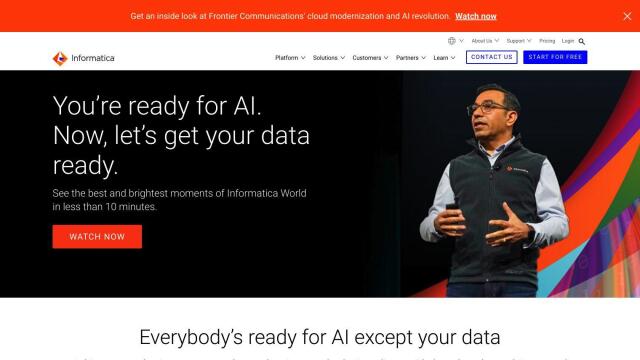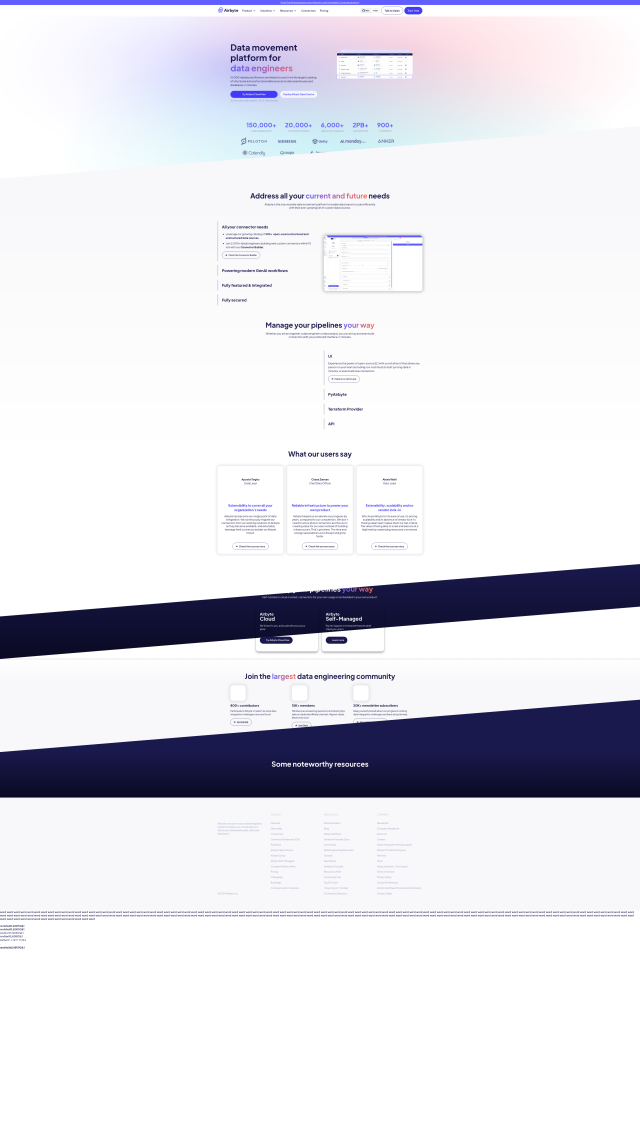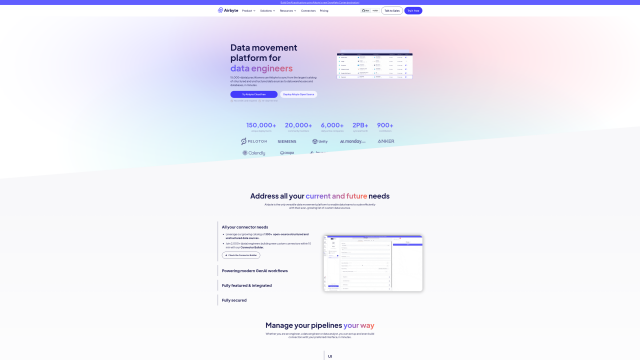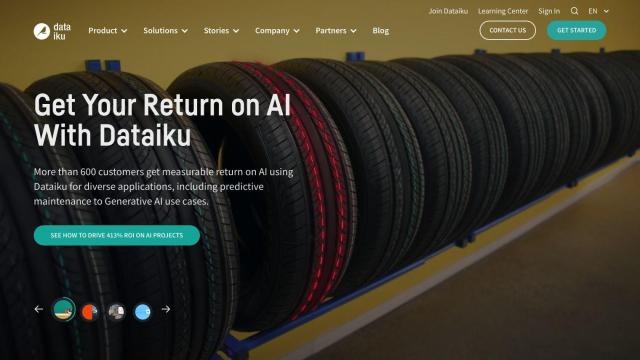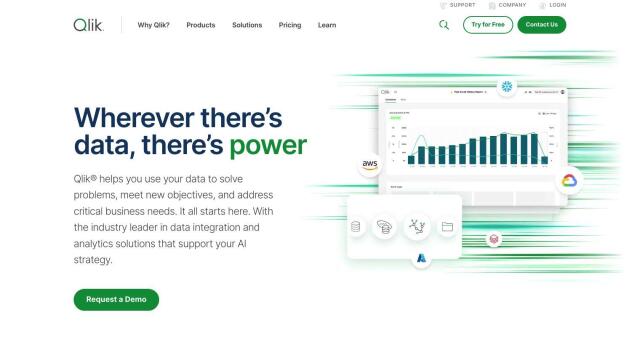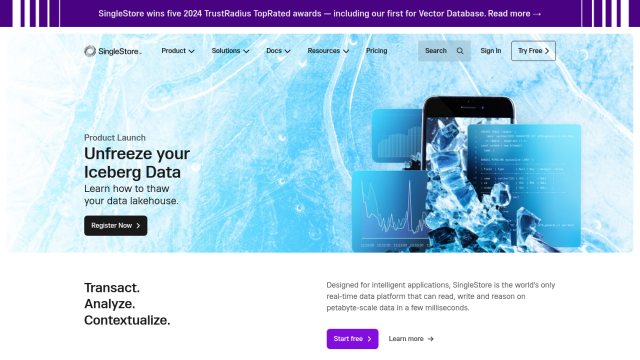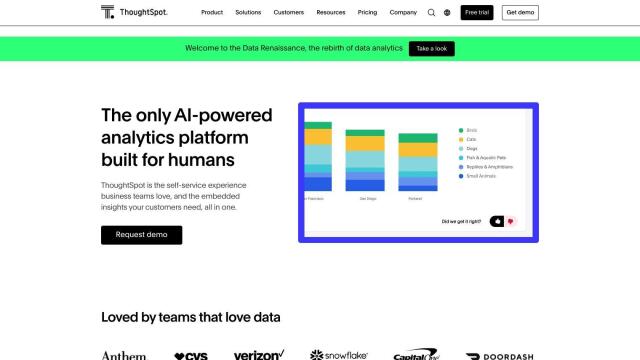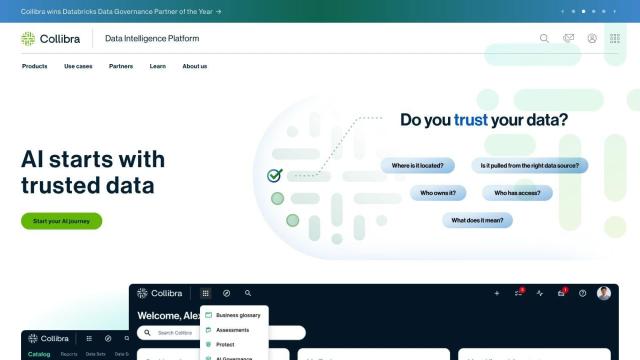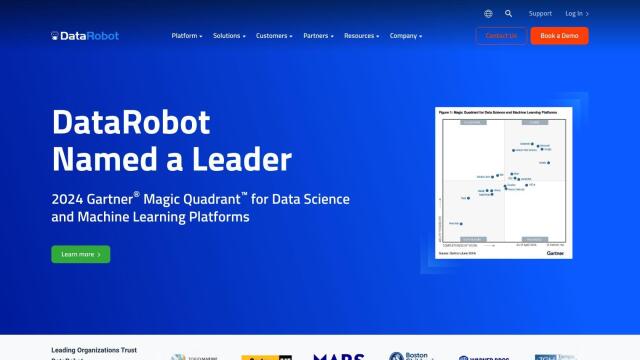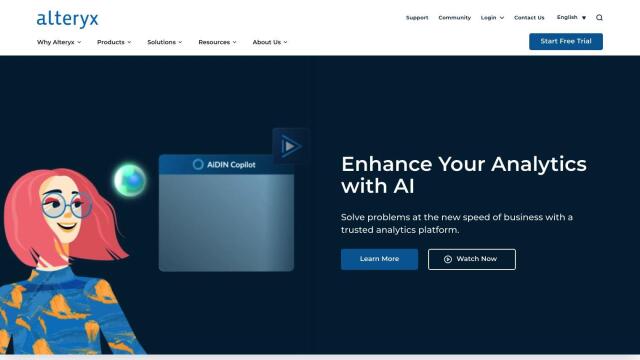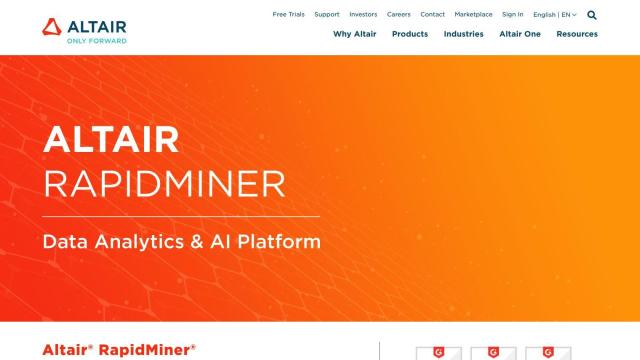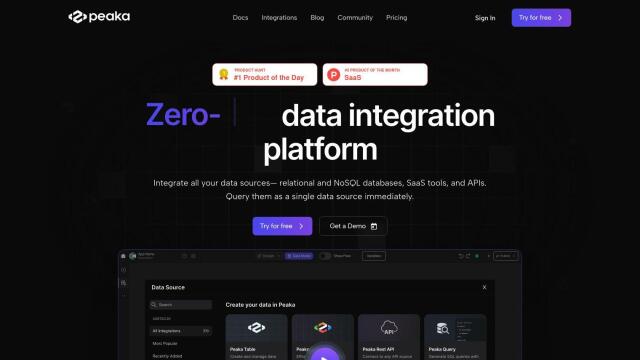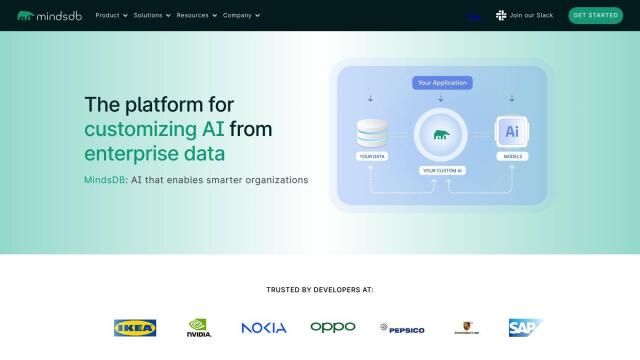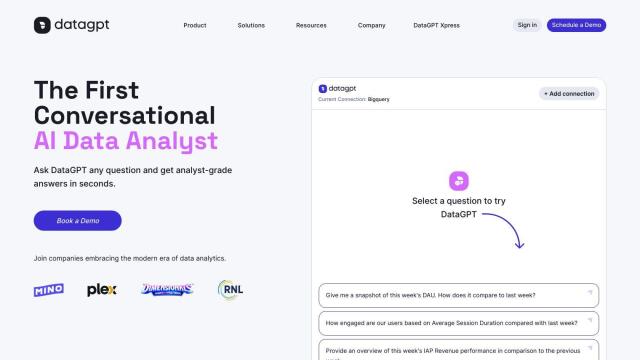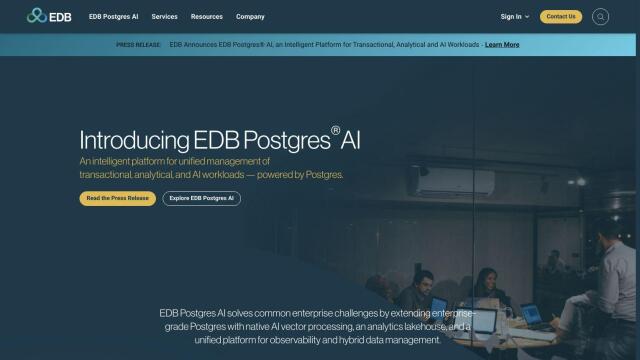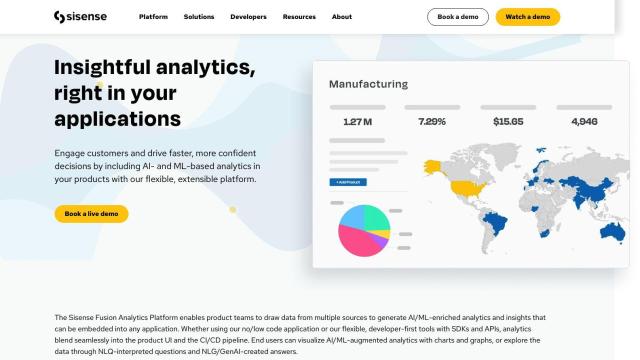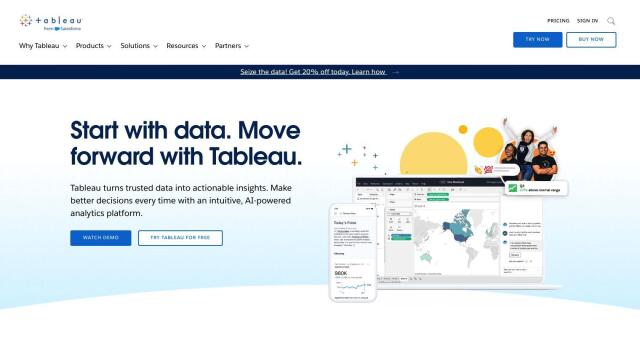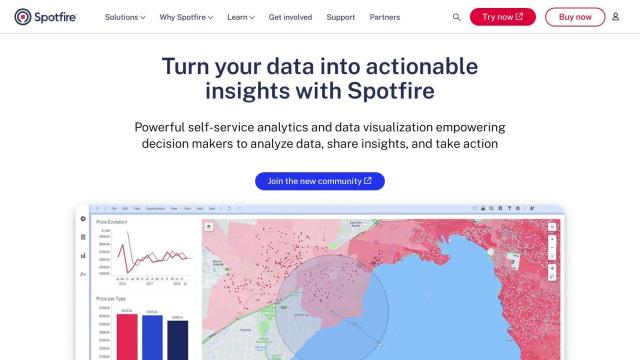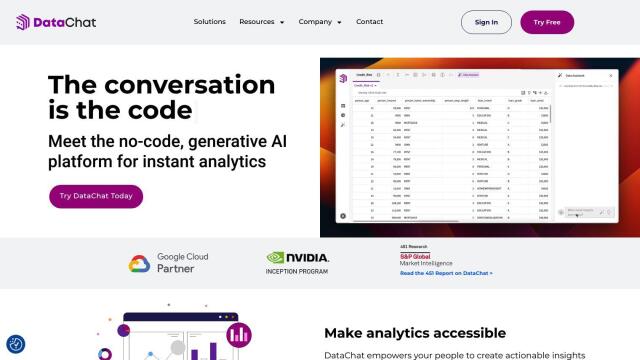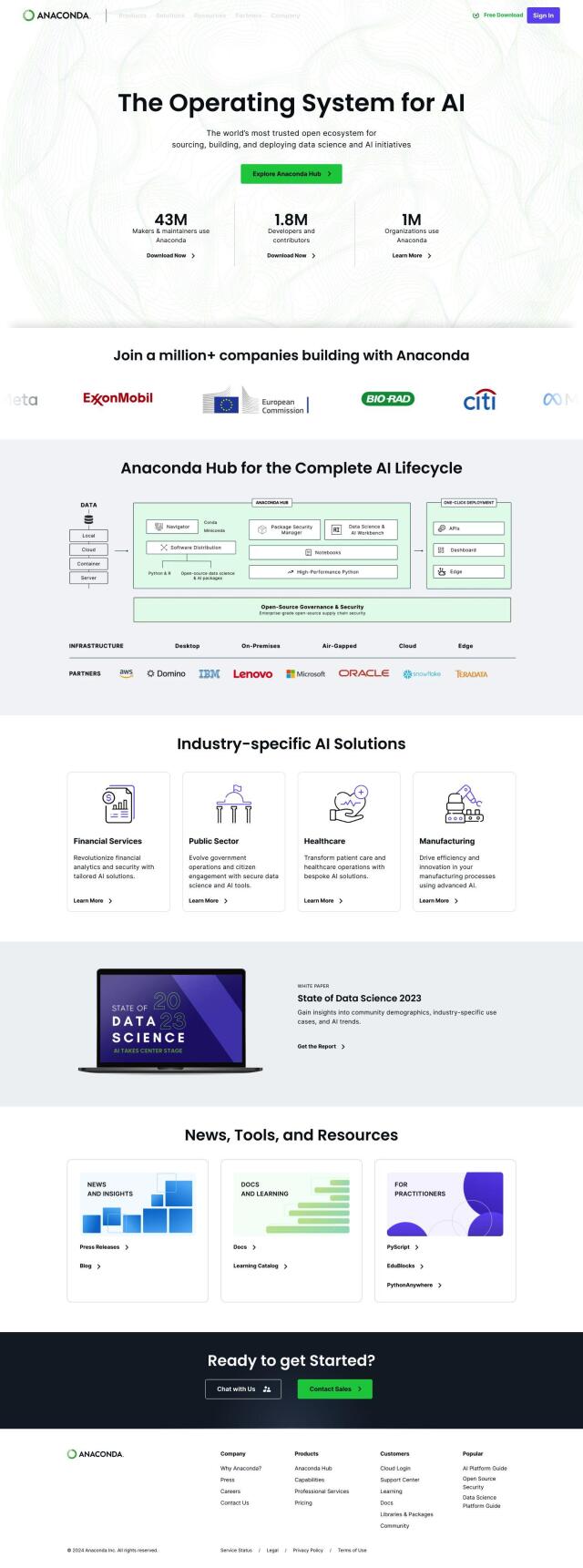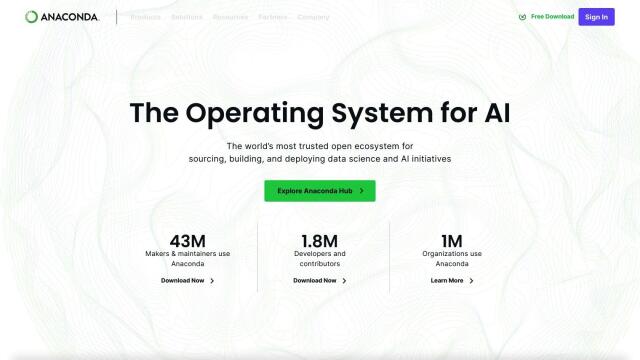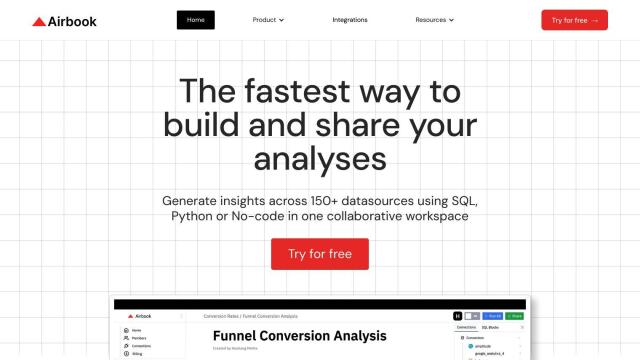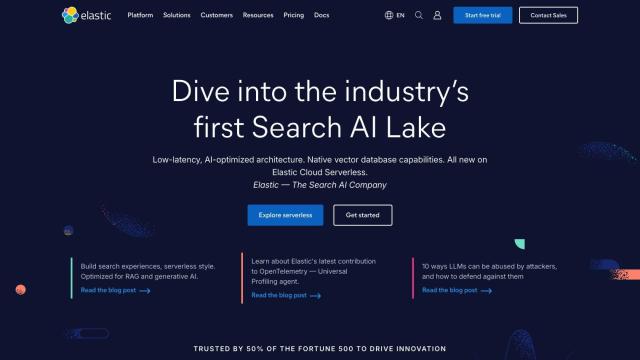Question: I'm looking for a solution that integrates real-time data from multiple sources and provides AI-driven insights for better decision-making.

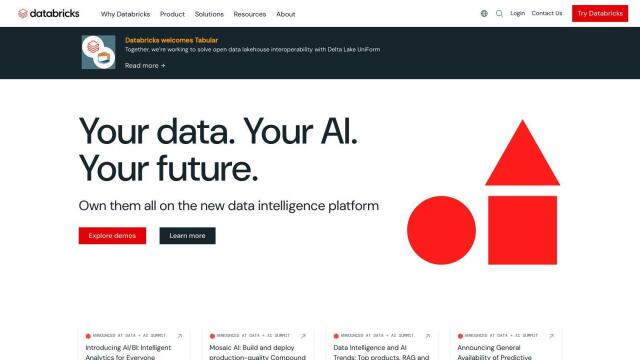
Databricks
First is Databricks, a data intelligence platform that marries generative AI to unify data, analytics and governance. It supports a variety of tools and integrations, including ETL, data ingestion, business intelligence and AI, all built on a lakehouse foundation. It offers democratized insights through natural language and cost-effective operations, making it a good choice for users who want to build, deploy and run AI applications directly against their data.

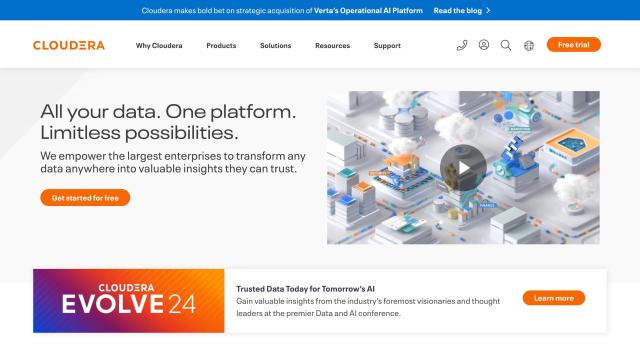
Cloudera
Another option is Cloudera, a hybrid data platform that securely ingests, processes and analyzes data in the cloud and on-premises environments. It aggregates vast amounts of data from many sources into a single trusted system for insights and AI model training. The platform offers real-time insights, automated data pipelines, large-scale data analytics and scalable application deployment, and is used in industries like financial services, manufacturing and healthcare.

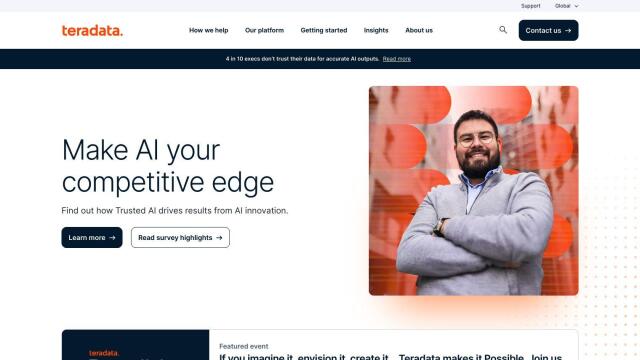
Teradata
If you need something more flexible and scalable, Teradata offers a cloud analytics and data platform that integrates and harmonizes data across an organization. Its core product, ClearScape Analytics, delivers faster answers and supports multiple workloads like AI/ML, lakehouses, data lakes and data warehouses. It can be deployed in public cloud, hybrid cloud or on-premises environments and offers trusted AI and flexible, pay-by-use pricing. That makes it a good choice for accelerating innovation and data-driven decision-making.

